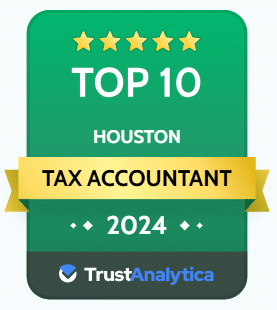What is the Employee Retention Credit?
The ERC is a fully refundable tax credit for a potion of the qualified wages you pay employees.
Dental Practices and Employee Retention Credit.
Many dental offices qualified for partial ERC in 2020 due to the COVID shutdown.
Is my Dental Practice eligible?
I keep hearing about the ERC and that we can get $26,000 per employee, even for 2021 is this true?
The quick answer is yes-but only if you qualify. The truth is that the ERC credit has become a money making machine for many pop up tax credit companies. These companies are not CPA firms, yet they are spending tremendous amounts of marketing money to get in front of dentists to convince them that they may qualify.
The criteria to qualify revolves around if you had a collection drop vs 2019 or if you were affected by a governmental order. Given the fact that most of our dental clients had higher revenue in 2021 than in 2019, and the fact that at least in Texas along with most states there were no true governmental orders restricting essential businesses. Due to this most practices would not qualify for ERC in 2021. Our viewpoint is that ERC firms are using highly grey areas to take an overly aggressive stance for 2021 ERC claims.
What is the risk of going with these highly aggressive stances for ERC?
Lets break this down:
- ERC firms are using massive marketing dollars to highlight specific phrases which make clients feel that they will get $26K per employee when in most cases it will be a percentage of this amount if you do qualify.
- They are using a highly debatable stance on what qualifies as a governmental order. These stances are being rejected by CPA’s and other tax groups across the board.
- Many of these firms are saying they will back up the client if there is an audit. However, how long have they been around? Additionally, if clients look at the fine print they state that based on their opinion, you the client presumably qualifies.
- In the case of an audit, if this grey area opinion is rejected, the client will have to repay the full tax credit amount along with penalties and interest which in case of large credits can be in the tens of thousands. This amount must be repaid back immediately as this is a credit coming from payroll taxes for which there is no payment plan.
- In order to get these credits, the client has to pay income tax on them (the credit increases your business taxable income) and has to pay the ERC company their cut.
- The IRS has said they will review larger ERC requests which is also why they have extended the amount of time they have to audit ERTC claims to five years
- When you sign the payroll documents for the ERTC, the business owner is 100% liable, not the preparer, the CPA, the sales consultant or the ERTC company you used. The complete liability to back up your claim rests on you per the IRS rules.
In summary of the risks, it is important for clients to understand who is selling these credits, how they are justifying these credits for 2021 (2020 is normally okay due to Gov Orders were clear and there is no grey area), additionally to understand the large risk associated with not being able to win in an audit and having to pay the IRS tens of thousands if not hundreds of thousands of dollars which you may not have at the time they decide to audit you.
So, what should you do?
Our advice is to put your case in front of your CPA and let them evaluate if you truly qualify. For our Dental clients we did this exercise in 2021 and went through each of our clients and reached out to those that we knew qualified based on their numbers. We’ve been able to get hundreds of thousands in justified tax credits for our clients, but their cases were backed up by facts. Just because a friend received a large ERTC check doesn’t mean they are home free, the IRS has five years to come back to you for proof!
We also advise clients that are truly in a grey area to wait. Another marketing tactic being used is that the ERTC timeline is running out. The fact is you have 3 years from the date you filed your payroll return, to go back and amend the return to claim the credit. So 2021, can still be claimed in 2023 or 2024 in some cases.
In summary, we advise having an honest discussion with your CPA if you think you may qualify but are on the fence. If your CPA is looking out for your best interest, they will show you both sides of the argument. For most CPA firms ERTC provides them extra income, so there is no reason for them not to push for a yes-except for those who truly want what is best for their client, and rather not see them years down the road in a tough spot with the government.

Be well informed and make sure you are getting guidance from an advisor you trust for the long term.











